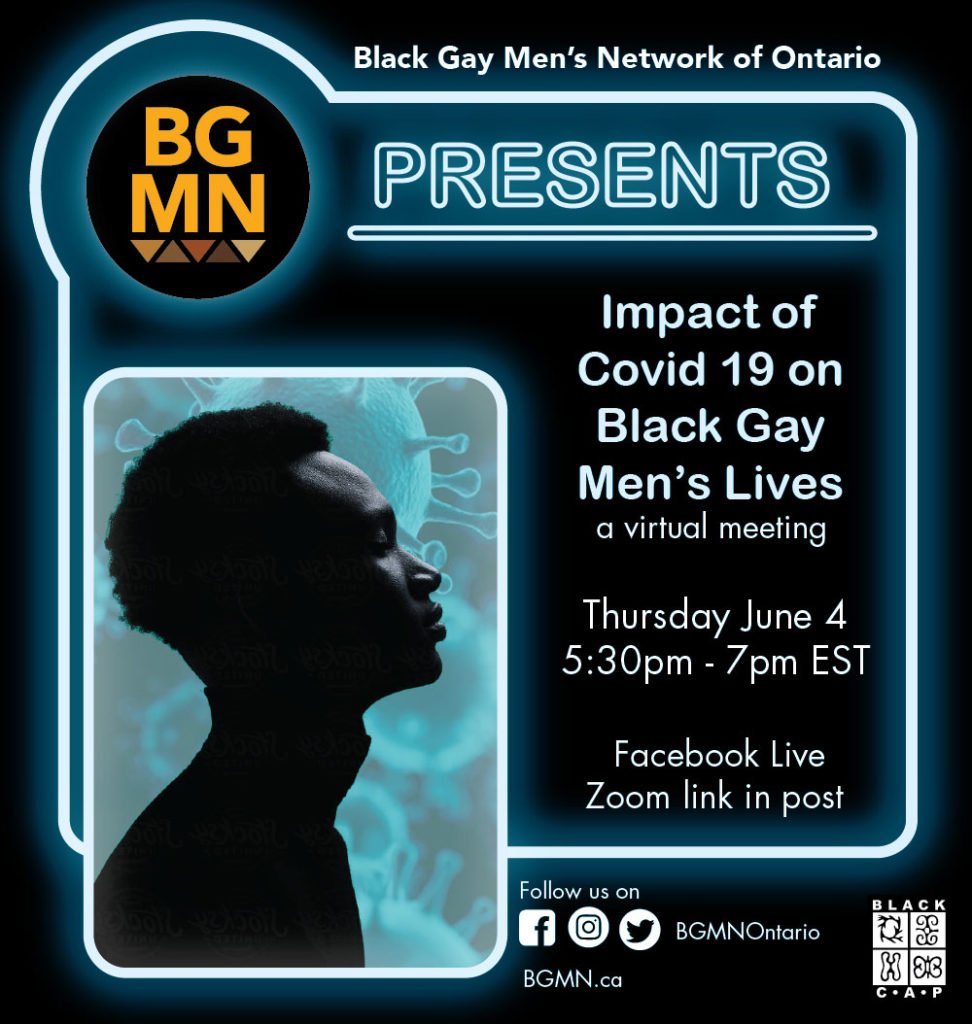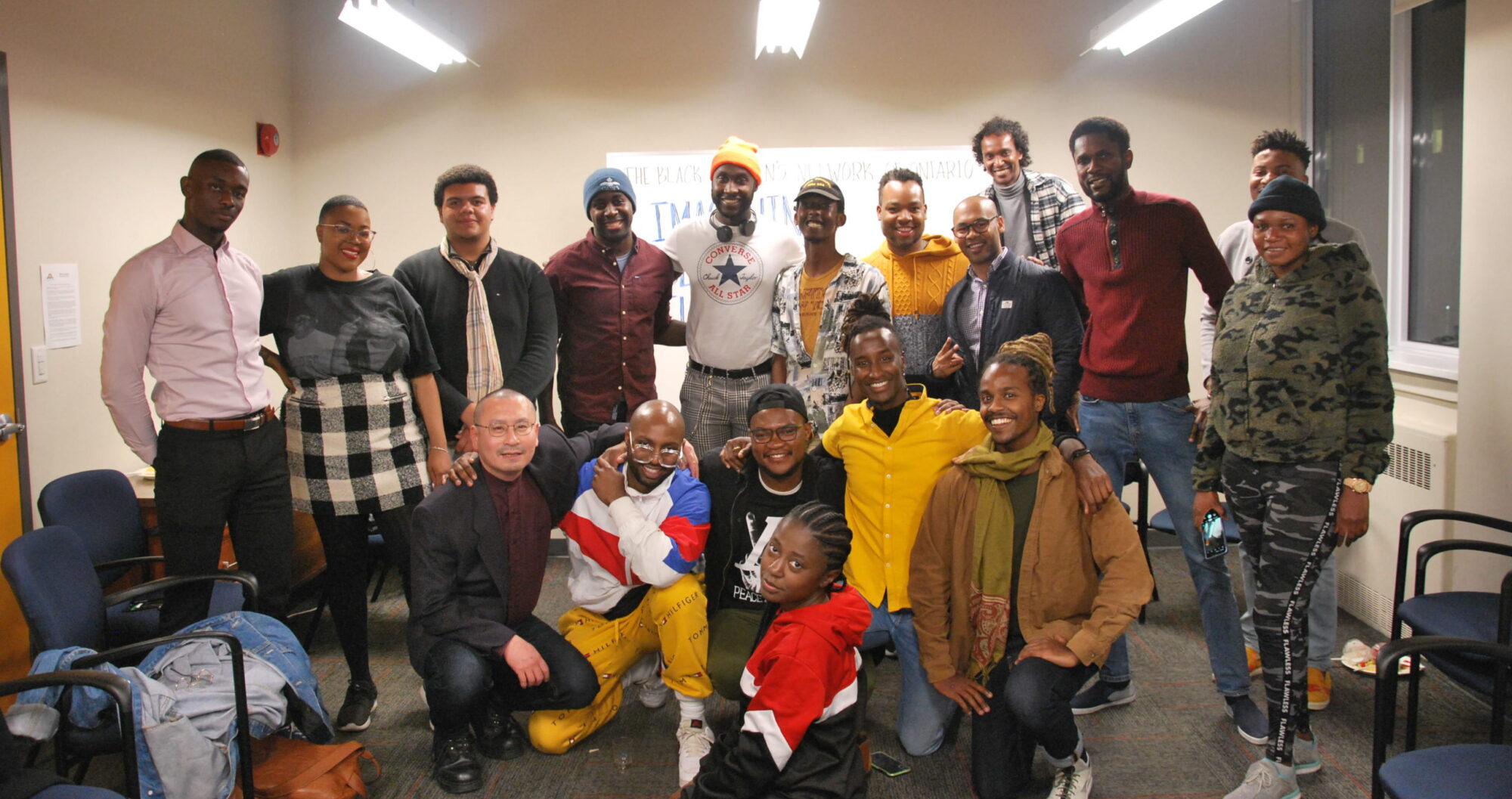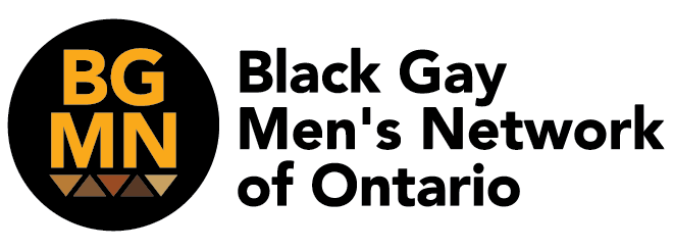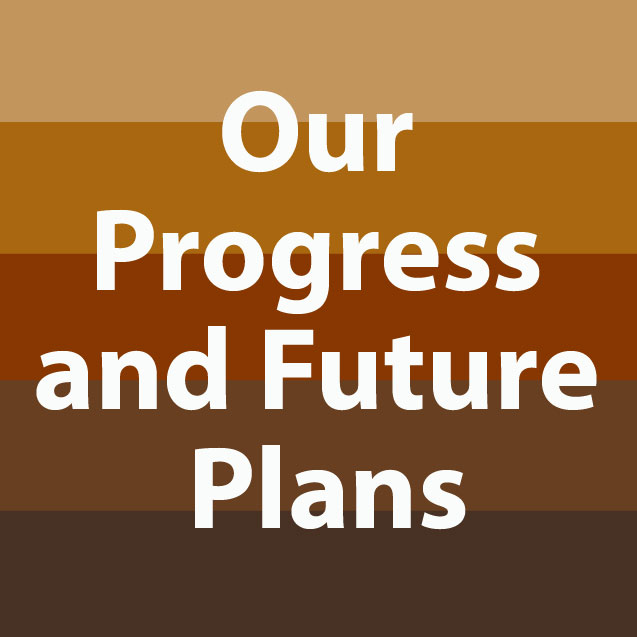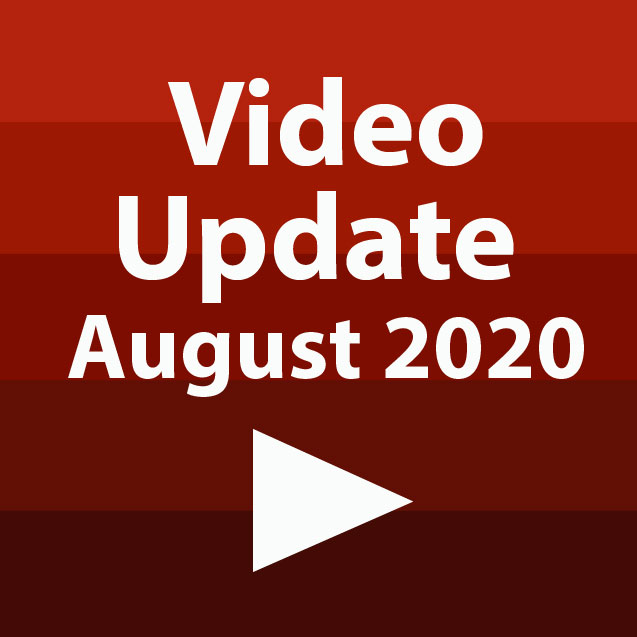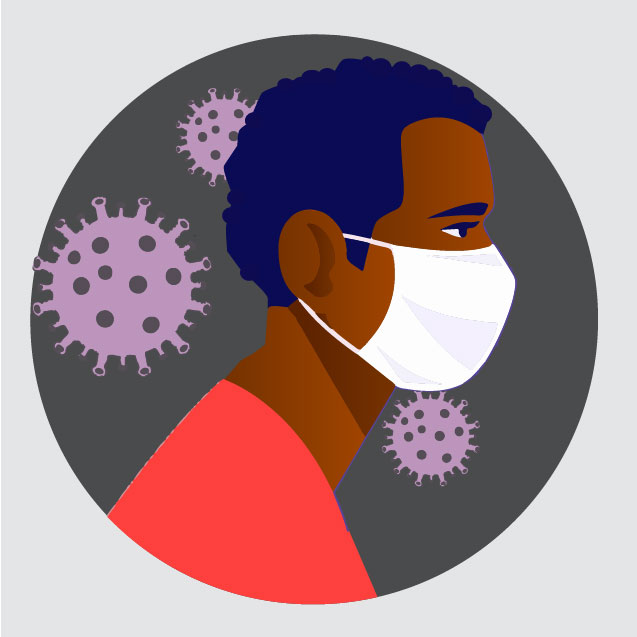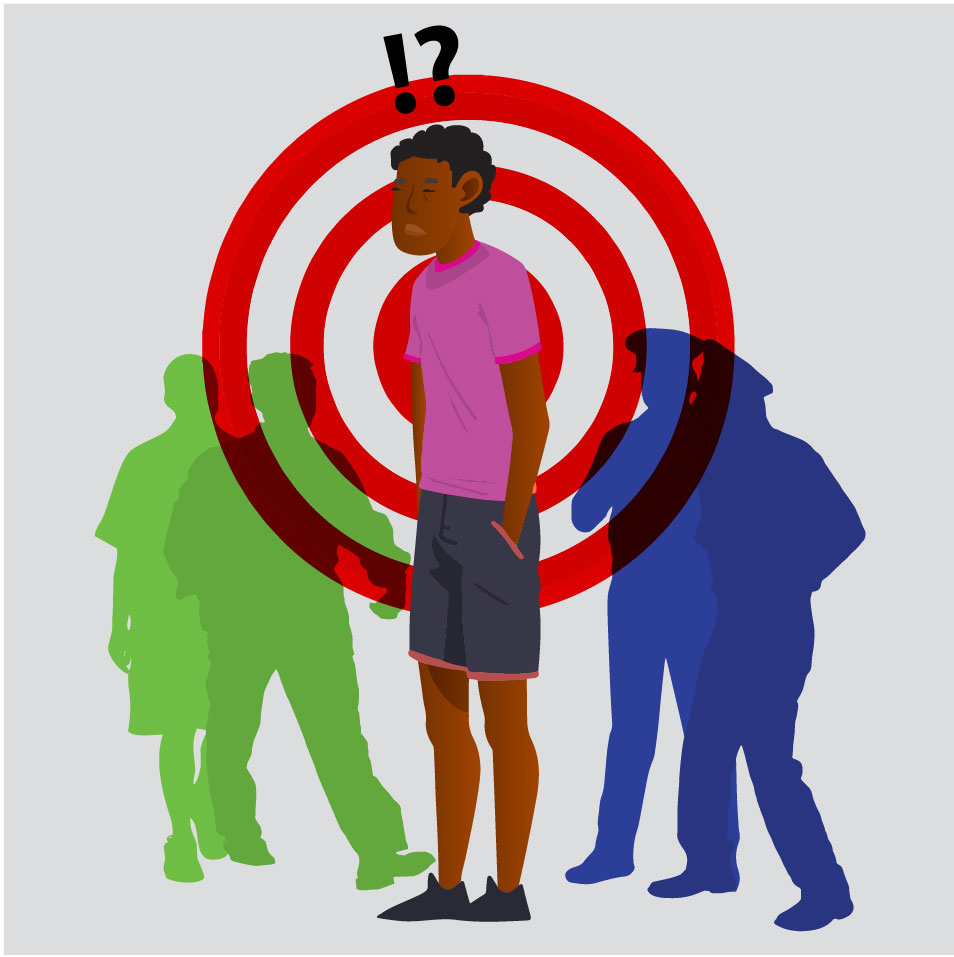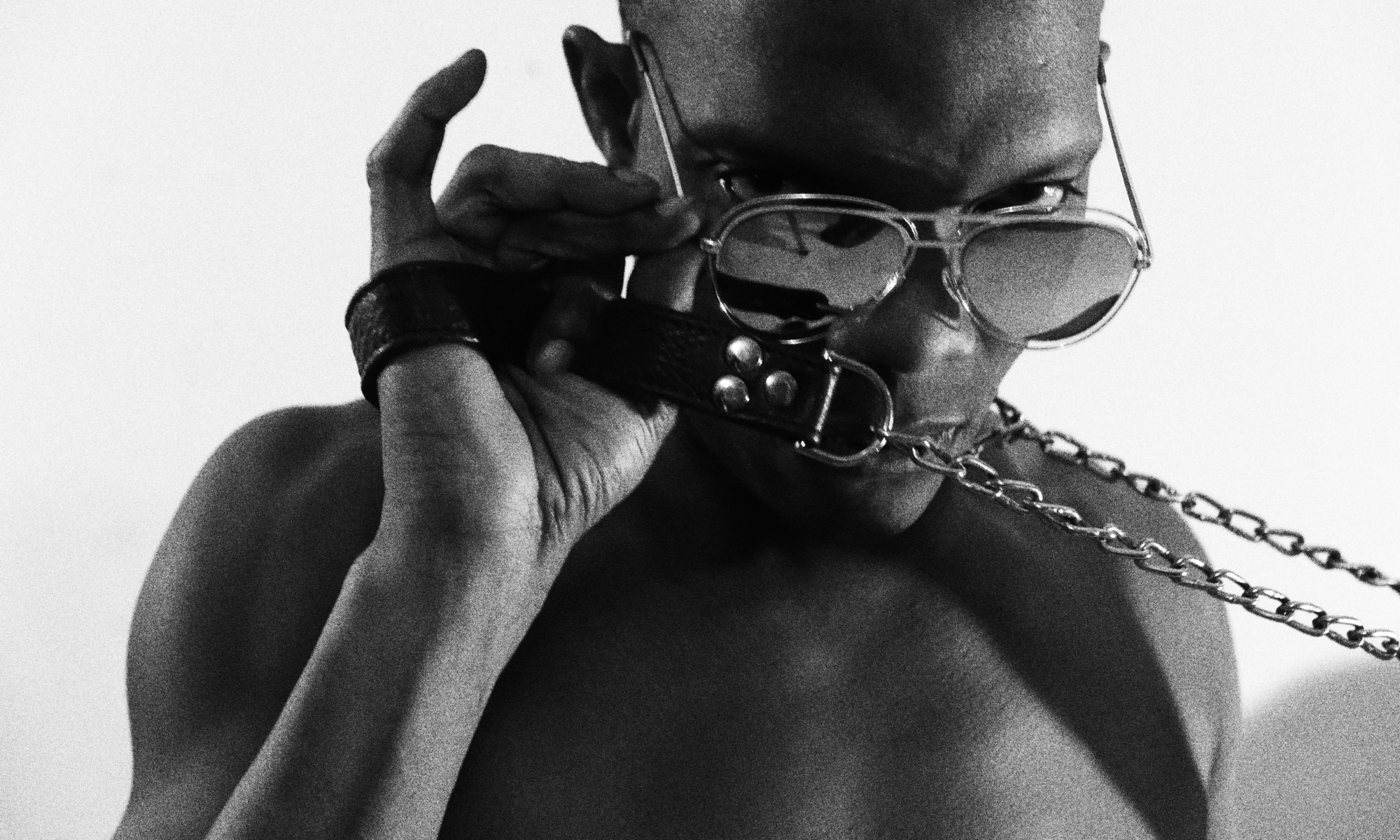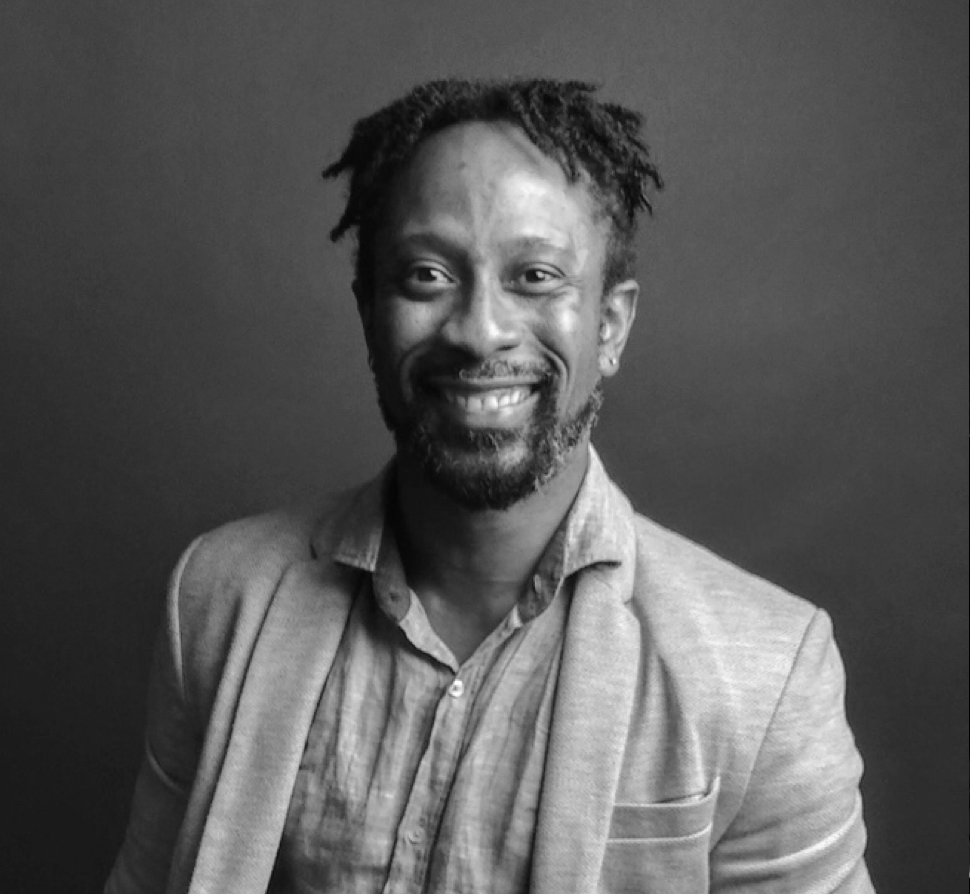
Taib’s Truths
Taib is a community developer, health and race equity researcher, HIV/AIDS educator, and queer rights activist based in Ottawa. As a consultant, Taib supports the development and implementation of online and in-person training on anti-racism and anti-oppression to build organizational capacity and create space for critical dialogue, which could lead to systemic change.
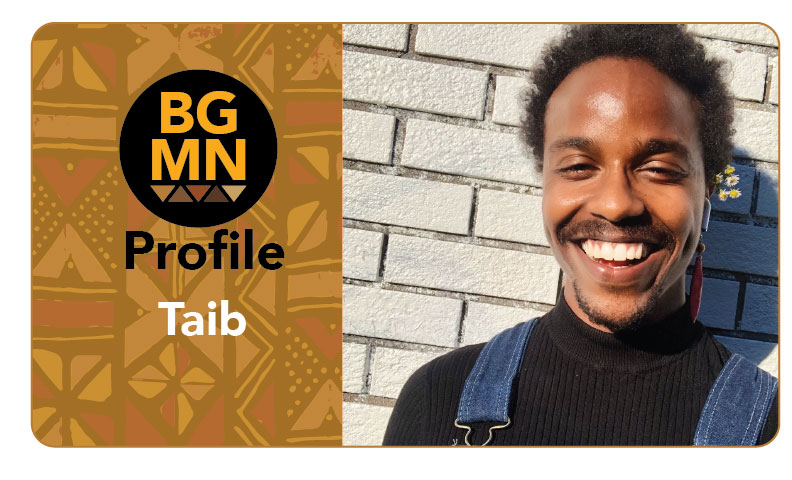
Taib has lived and worked on the continent of Africa, specifically Nairobi, Kenya, doing HIV/AIDS research and human rights consulting with local nonprofits and UN agencies. After two years there, he moved back to Ottawa and out of a sense of needing to connect, he co-founded Keepingit100 – a social discussion group for Black queer and trans guys.
What’s your favourite thing to do right now?
I’m enjoying the outdoors, biking, running, and rollerblading around to new places or just lounging at the beach in the sun. I’ve also started baking. Chapatis, cookies, and brownies are some of my specialties and favourites.
Who are some of your influential authors or books to read?
The most influential book I’d say was Lawrence Hill’s The Book of Negroes. It was the first book I read in high school where I felt like I was hearing a story I knew, but no one had described in such an eloquent way. Since then Steve Biko’s I Write What I Like (a last-minute purchase at O.R. Tambo International Airport in Johannesburg, South Africa, the best decision), and The Nest Collective’s Stories of Our Lives (a collection of stories about LGBTI+ Kenyans).
How has your upbringing influenced you as an adult?
My family is the reason I’m able to have the confidence to make a profile like this. They’ve always been my biggest supporter and I of them. The system really tries to tear down Black kids to tell them they aren’t smart, cute, and strong. I’m thankful to have a family that believes blackness is excellent in all forms.
Hepatitis C Awareness Day
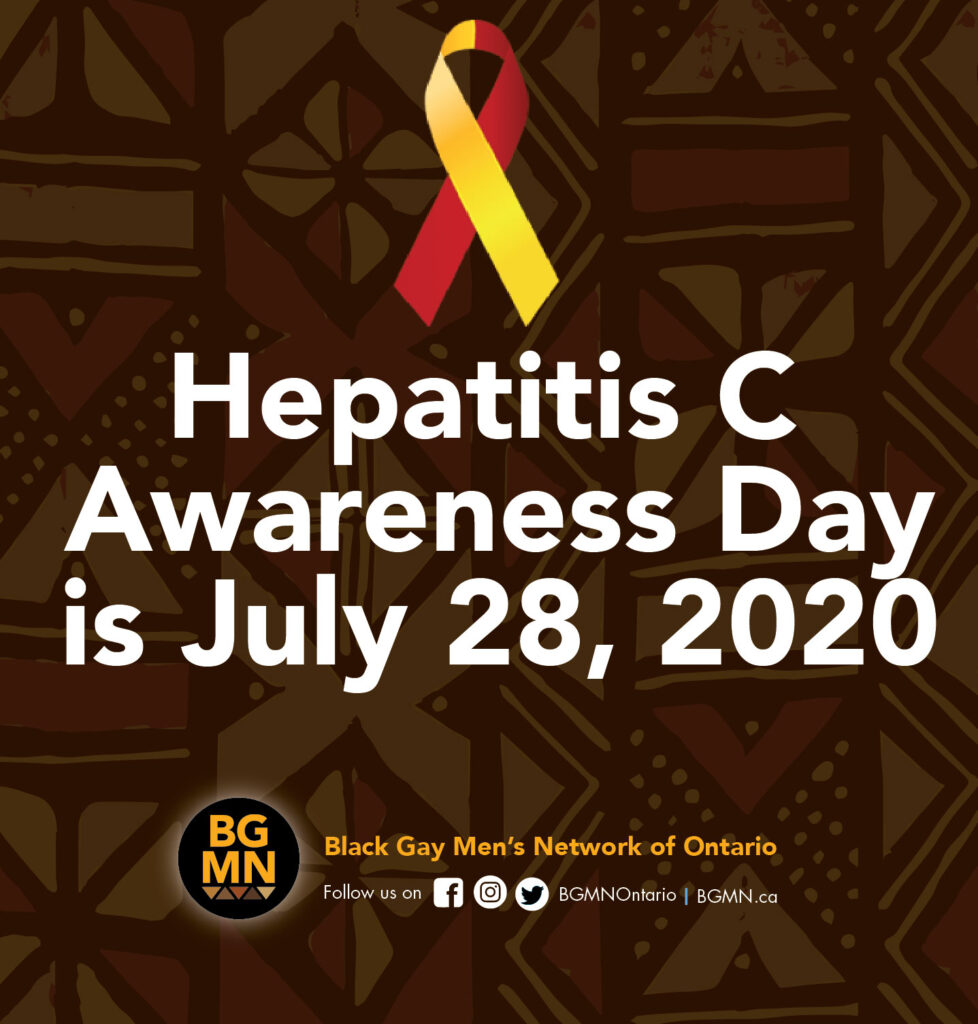
Almost half the people with Hepatitis C in Canada don’t know they have it – that includes Black Gay Men! Starting Treatment cures over 95% of people living with the disease. Talk to your nurse or doctor about getting tested for Hepatitis C – https://catie.ca/en/whd
Emancipation Day!
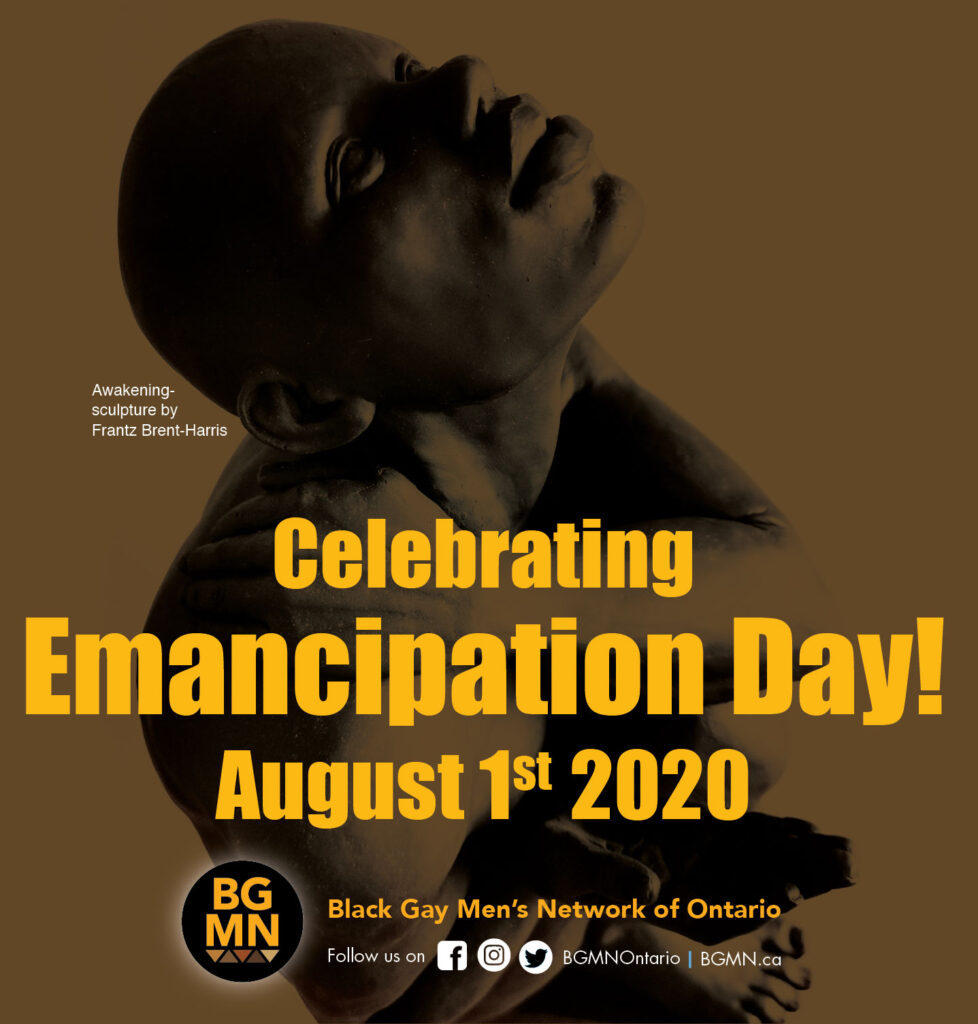
As a community of Black gay men, we honour the past and paths that have led to our freedoms. We take the present opportunities to reaffirm those liberties. We continue to fight for a brighter future!
New profile-William Koné
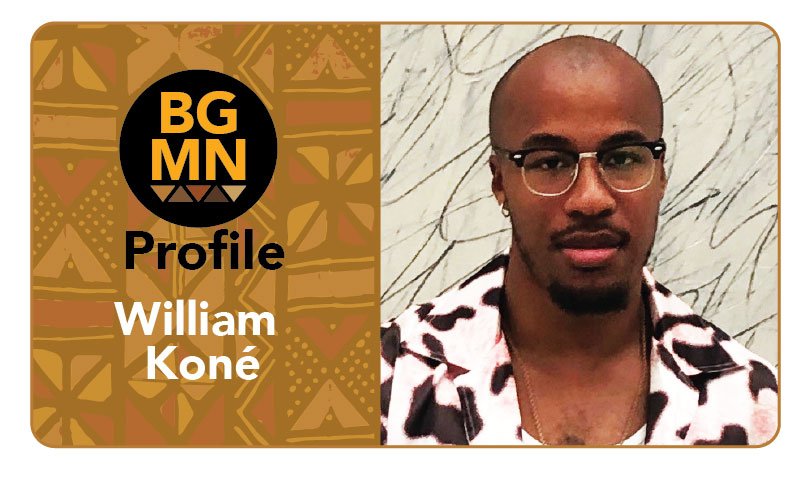
William Koné
William Koné is a MA graduate in psychotherapy. He completed his degree at Saint Paul University and his BA in psychology at Carleton University. His studies initially focused on autonomy’s impact on romantic success. Later, he highlighted relationship satisfaction among gay men. William intends to practice individual and couples therapy to specialize in identity and interpersonal conflict, preferably among the Black and/or LGBTQ+ population.
With MAX Ottawa, he co-facilitated discussions on anxiety and body image among guys into guys. Currently, he co-supervises its peer support program. As an Ottawa native, William is eager to support community projects that celebrate and heighten its Black queer presence in the city. This prompted him to co-found the Cap City Kiki Ballroom Alliance, serving as the sister chapter to the Toronto Kiki Ballroom Alliance.
How do you manage COVID related stress/anxiety?
Its been challenging having to process the amount of loss I endured this year. The alliance had just launched before the pandemic hit, so it hurt me knowing that our plans were shelved. My program underwent shifts so we could all graduate on time, but the journey to the end wasn’t satisfying given everything that was going on. Accompanied by the Anti-Black racism unfolding globally, it was a strain to get up and be productive for a while. I was even secluding myself from others because I was emotionally all over the place.
Long story short, I’m still figuring it out. Flagging depressive symptoms as they come up has helped by putting a name to what I’m experiencing. Loved ones have been holding me accountable for specific tasks, allowing me to focus my attention on what I’m interested in. Utilizing the resources that are available for me to vocalize my concerns was beneficial as well. I’ve always struggled to ask others for things, but the pandemic has made it apparent that many are grounded in the same pain. It’s validating to know that I can connect with others that hold genuine regard for me.
Who is your favourite streaming DJ on FB or Instagram live or what’s on your playlist?
With current music, the female rappers are giving it. City Girls, Megan Thee Stallion, and Saweetie are necessities. Their unapologetic demeanor accompanied by their dismissal of the male gaze forever reigns supreme to me. My playlists are based on the mood I’m in, so I use a single-word adjective to paint the story I’m creating. Right now, I’m curating one for my birth year 1993 to draw inspiration for writing. Essentials like Jodeci, Queen Latifah, A Tribe Called Quest, Tupac, and Mariah are obviously a part of the vision.
In general, I live for 90s Hip-Hop and R&B. The range and the style of that era remains unmatched, so I try to sprinkle favorites into playlists like Brandy, Janet, Nas, Gang Starr, Wu-Tang, and Foxy Brown.
How has your upbringing influenced you as an adult?
Being raised by a single mother was challenging because most expected her to fail. Raising Black boys as a young Black woman was considered detrimental towards our manhood. In the end, it was the biggest blessing I could’ve asked for. My mom taught me more about manhood by contradicting the stereotypes of what a provider looked like. Her teachings exposed me to the plights women endured, allowing me to embrace femininity as opposed to being threatened by it.
Her resiliency and her authenticity shape the way I operate today. She wasn’t hindered by other people’s perceptions because she prioritized what mattered to her, which were my siblings and I. There were countless times where I doubted my abilities because social and academic circles centered on white heteronormativity. She was the one to stress the importance of being myself. For that alone I’m grateful. I owe it to her to live my truth because she gave me the care I needed to survive this life.
Describe a scene of your vision for the future.
I want Ottawa to have options. For Black queer people to have the satisfaction in choosing different scenes/opportunities for personal fulfillment, whatever that may be. Many choose to sleep on what the city provides, but to me it’s a copout. With the number of driven yet inspiring faces I’ve encountered here, it’s inexcusable. There’s so much room for us to thrive and I want our presence to be known, point blank.
As for me, I’m conscientious of legacy. I’m eager to leave something behind that not only reflects my passions but extends beyond my intentions to better my community. I want a practice that houses Black professionals in various sectors of mental health, so people understand that support was built for them to turn to. That would be one of my biggest accomplishments.
Love is Heaven On Planet Earth

Malcolm Lovejoy is outspoken about love and how it has a heavy influence on his work.
A man of many talents, this one-of-a-kind music artist and thinker creating transcendental melodies about love and sexuality under the eponymous Mindbender, known in the Hip Hop scenes of Toronto beyond North America.
Recently, he’s evolved into a journalist and a polyamorous relationship counsellor inspiring the erotic identity behind the adult entertainment star and thought leader – Malcolm Lovejoy.
We hosted the award-winning porn-star this weekend in a steaming live session and talk about sex work, sexual health and pleasure plus some very personal life experiences around acceptance. See it here.
Follow BGMN and join Ontario’s growing Network today.


Creating Space: Breathing, Moving Together with Kevin Ormsby
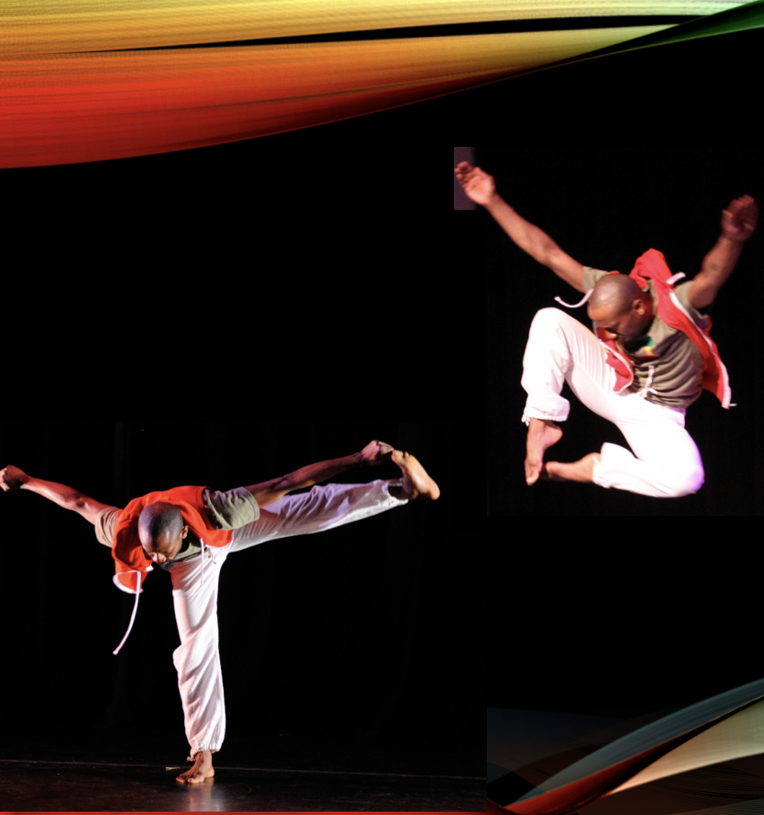
We hosted Kevin A. Ormsby June the 14th for an interpretive dance experience, a collective reaffirmation of love, solidarity and support for Black Lives and LGBTQ2 folks in these remarkable times we are in.
See it here!
About Kevin A. Ormsby
Kevin A. Ormsby works as a dancer/choreographer and Arts Strategies Consultant and holds the positions of Artistic Director for KasheDance and Program Manager for the Cultural Pluralism in the Arts Movement Ontario (CPAMO) organization. He is Professor of Dance Performance at Centennial College and an Adjunct Artist with Dance Exchange in Washington, DC.
A 2016 Ontario Arts Council Chalmers Fellowship recipient, OAC KM Hunter Dance Award 2016 nominee, Toronto Arts Council’s Cultural Leaders Lab Fellow, and the 2014 Canada Council for the Arts’ Victor Martyn Lynch — Staunton Award recipient in Dance, Kevin’s career spans over 30 years and has had him performing with various companies and projects in Canada, the Caribbean and the United States.
Kevin currently sits on the Board of Nia Centre for the Arts, Dance Collection Danse and Toronto Alliance for the Performing Arts.
An Essential Anti-Racist Reading List
If you are Black and living in any country with a white identity you will invariably have friends and acquaintances who are white. These white friends with whom you may have had discussions around racism in the past are perhaps now expecting you to give them a full course on how-not-to-be-racist or what-can-I-do-about-racism. However they will still put their white feelings as a priority over your Black trauma and the dialogue will be met with denials, delusion and professed ignorance. The end result will be you, the Black person will be drained and exhausted and they, the white person would have been entertained.
So for your mental health I am passing on “An Essential Anti-Racist Reading List” This is a list of books compiled by Hayley Maitland for Vouge UK, that you can tell your white friends to go and read, and after reading you can then recommend them to professionals they can pay to consult if they have further questions.
Freedom Is A Constant Struggle by Angela Davis
Numerous quotes by the pioneering activist Angela Davis have gone viral on social media in the wake of George Floyd’s tragic death – but there is far more to be learned from the Black Power icon than can be contained in an Instagram post. Start with Freedom Is A Constant Struggle (2016), which compiles her thoughts and essays on everything from the legacy of Apartheid to the nature of the Ferguson protests and the many ways in which racism has clouded feminist thought through the years.
Why I’m No Longer Talking to White People About Race by Reni Eddo-Lodge
Structural racism is by no means a problem limited to the US – as Reni Eddo-Lodge makes clear in her seminal Why I’m No Longer Talking To White People About Race. The title is lifted from Eddo-Lodge’s own viral blog post from 2014, in which she famously declared that she had had enough of trying to reason with white people who were “living a life oblivious to the fact that their skin colour is the norm and all others deviate from it”. The full work expands on this concept – picking apart the insidious nature of white privilege in minute detail – and mapping the ramifications of racial bias in the UK, from slavery through to the lynch mobs that swept across key British cities following the First World War.
The Fire Next Time by James Baldwin
A classic of the Civil Rights Movement, The Fire Next Time is divided into two parts: one is a letter written to Baldwin’s 14-year-old nephew on the 100th anniversary of the abolition of slavery, and the other is a powerful reflection on the author’s formative years in Harlem. While it captures Baldwin’s entirely justified anger at the state of the nation in the 1960s, it’s also, in many ways, a hopeful and galvanising read. “If we – and I mean the relatively conscious whites and the relatively conscious blacks, who must, like lovers, insist on, or create, the consciousness of others – do not falter in our duty now, we may be able, handful that we are, to end the racial nightmare, and achieve our country, and change the history of the world.”
Men We Reaped by Jesmyn Ward
In addition to her powerful novels Salvage the Bones and Sing, Unburied, Sing, National Book Award-winner Jesmyn Ward is also the author of a gut-wrenching memoir, Men We Reaped, which recounts the deaths of five young black men in her life over as many years – men “pinioned beneath poverty and history and racism”. The title is a nod to a verse written by abolitionist Harriet Tubman following a Civil War battle in which countless African-American soldiers died: “We heard the thunder and that was the big guns; and then we heard the rain falling and that was the blood falling; and when we came to get in the crops, it was dead men that we reaped.”
They Can’t Kill Us All: Ferguson, Baltimore, And A New Era In America’s Racial Justice Movement by Wesley Lowery
As a reporter for The Washington Post, Wesley Lowery spent much of President Obama’s second term in office travelling from city to city, covering the deaths of unarmed black men at the hands of white police officers, including Michael Brown, Tamir Rice, and Freddie Gray. They Can’t Kill Us All begins with his own aggressive arrest during the Ferguson protests after allegedly “failing to disperse” quickly enough when police officers cleared out a McDonald’s – then goes on to recount the evolution of the Black Lives Matter movement from the front lines. In short, it’s essential reading right now.
Inglorious Empire: What The British Did To India by Shashi Tharoor
Written by a United Nations diplomat turned Indian National Congress MP in New Delhi, Inglorious Empire firmly discounts any romantic notions of colonisation in taking India as its subject. Published in the immediate aftermath of Brexit, it documents the systematic subjugation of a country whose share of the world economy at the start of the 18th century was 23 per cent, a figure which had plummeted to 3 per cent by the time the British left. As Britain reassesses its imperial fantasies, this book is an urgent read.
The New Jim Crow: Mass Incarceration In The Age of Colorblindness by Michelle Alexander
As Ava DuVernay pointed out in her brilliant documentary 13th (now available to stream on Netflix), the American Constitution’s 13th Amendment outlaws slavery “except as a punishment for crime whereof the party shall have been duly convicted”. Civil rights lawyer Michelle Alexander reflects on the many ways in which this loophole has been exploited – tracing how and why the number of prisoners in America rose from roughly 350,000 to more than 2 million between the 1970s and 2010. Her central thesis: that the so-called war on drugs launched by President Reagan ultimately “emerged as a stunningly comprehensive and well-designed system of racialised social control that functions in a manner strikingly similar to Jim Crow”. Note: at the close of 2019, a staggering 4.7 per cent of all black millennial men in the US were incarcerated, according to research conducted by The Stanford Center on Poverty and Inequality.
Between The World And Me by Ta-Nehisi Coates
“I write you in your fifteenth year,” Ta-Nehisi Coates notes at the beginning of this extended letter to his son. “I am writing you because this was the year you saw Eric Garner choked to death for selling cigarettes; because you know now that Renisha McBride was shot for seeking help, that John Crawford was shot down for browsing in a department store. And you have seen men in uniform drive by and murder Tamir Rice, a 12-year-old child whom they were oath-bound to protect. And you have seen men in the same uniforms pummel Marlene Pinnock, someone’s grandmother, on the side of the road. And you know now, if you did not before, that the police departments of your country have been endowed with the authority to destroy your body.” What follows this heartbreaking declaration is a nuanced analysis of racism’s centrality to American life – and, critically, a study of the development of the fictional notion of “whiteness”.
The Good Immigrant: 21 Writers Explore What It Means To Be Black, Asian, And Minority Ethnic In Britain Today edited by Nikesh Shukla
Edited by the British journalist Nikesh Shukla, this crowdfunded book of essays includes submissions from Reni Eddo-Lodge, Riz Ahmed, and Vinay Patel, amongst others, with unique perspectives on deeply ingrained racist attitudes in the UK. Sparked by a comment underneath one of his articles on the Guardian, Shukla was inspired to write a progressive book about race issues in Britain. “I was sick of the assumption that whenever people of colour get an opportunity it’s not because of our skill or merit,” he has said, of conceiving of the project. Centring on the binary that a “good” immigrant is symbolised by a BAME-background Olympic gold medallist, and a “bad” immigrant is written off as a “benefits-scrounger”, the book, which Shukla describes as “a document of what it means to be a person of colour now”, explores the “constant anxiety” at the heart of the immigrant experience.
Barracoon: The Story Of The Last Slave by Zora Neale Hurston
“Of all the millions transported from Africa to the Americas, only one man is left. He is called Cudjo Lewis and is living at present at Plateau, Alabama, a suburb of Mobile. This is the story of this Cudjo.” So begins Zora Neale Hurston’s Barracoon, a compilation of interviews between the author of Their Eyes Were Watching God and the last known survivor of the Middle Passage in 1927. Interwoven with Cudjo’s own story – preserved in his lyrical dialect – are Hurston’s endearing reports of trying to get him to speak to her: appearing on his doorstep with baskets of Georgia peaches and a “box of Bee Brand insect powder” to get rid of mosquitoes. A phenomenally important and deeply rewarding book.
Your Silence Will Not Protect You by Audre Lorde
“I am not free while any woman is unfree, even when her shackles are very different from my own,” declared Audre Lorde during a keynote talk in Connecticut in 1981. “And I am not free as long as one person of colour remains chained. Nor is any one of you.” Every work by the self-proclaimed “black, lesbian, mother, warrior, poet” deserves to be read more than once – but this compilation of her greatest speeches and writings is a powerful introduction to this revolutionary voice.
Statement of Endurance, Life, and Love.
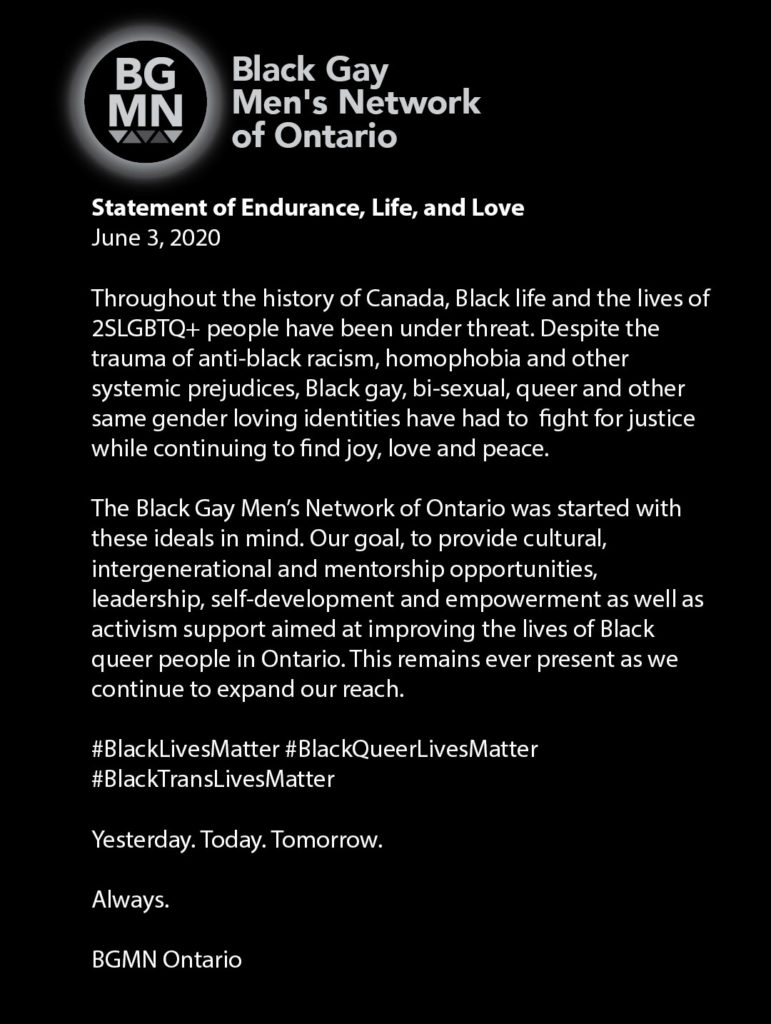
Title: Impact of COVID-19 on the Lives of Black Gay Men: A Virtual Conversation
Join in a conversation with other Black gay men about how you are coping, COVID19 information and what support is needed.
Title: Impact of COVID-19 on the Lives of Black Gay Men: A Virtual Conversation
Speakers: Rodney Diverlus, Lee Souljah Simmons and Gbolahan Olarewaju.
Register in advance for this meeting:
https://us02web.zoom.us/meeting/register/tZYqcuyprjwqHNPT2MPavt7Y28u3UiaxxZsj
After registering, you will receive a confirmation email containing information
about joining the meeting.
Date: Thursday, June 4th, 2020
Time: 5:30 -7pm EST
Register in advance for this meeting:
